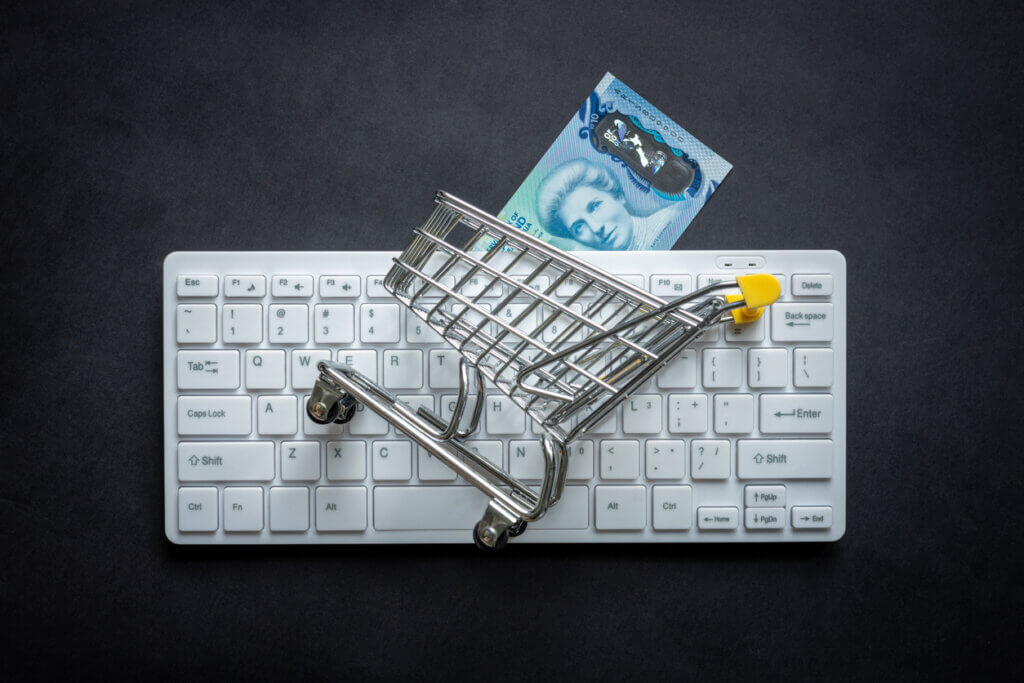What is a good delivery service?
As ecommerce has evolved, a good delivery experience has become essential for both merchants and customers. Merchants want to provide their customers the best possible overall shopping experience, while customers want their orders delivered quickly and without issue.
In this blog post, we will compare the expectations of merchants and customers regarding delivery services. We will also discuss how merchants can improve their delivery services to make sure both they and their customers are happy!
Ecommerce shopping
Ecommerce has grown astronomically in New Zealand over the past few years. In 2022, the ecommerce market in New Zealand reached $6.2 billion NZD, a 4.2% increase from the previous year. This growth is expected to continue as more people turn to online shopping for convenience and selection.

Customers:
Ecommerce has changed the way we shop for good. In the past, consumers would have to go to a store and physically pick out the items they wanted to purchase. This would often involve long lines and waiting for someone to process the sale. With ecommerce providing the ability to transact online, customers can now shop from the comfort of their own homes.
This has heightened in more recent years due to the pandemic, and on the customer side, our research in 2021 found that 66% of Kiwis receive more parcels than they did pre-COVID.
B2B Market Insights Report 2026
The fastest adopters are winning as speed, transparency and reliability are now non-negotiable for B2B buyers. Learn how to stay ahead of the game.

Merchants:
For merchants already set up for ecommerce, the boom has been great. It has allowed them to reach a larger audience and to sell their products to consumers worldwide. For many small firms in New Zealand, the epidemic has accelerated their previously lacking digital agility. 49% of merchants adjusted their business for increased levels of online trading due to COVID.
Merchants need to be able to provide the customer with a flawless digital experience. This means that providing exceptional customer care online, taking payments online, and ensuring that their website is easy to use is vital.
Tracking
Tracking is the process of following a package from its origin to its destination. How do consumers track a delivery? The tracking number is a unique identifier assigned to each package when shipped. This number can track the package’s status as it makes its way from the merchant to the customer. Tracking information for orders are available on most ecommerce websites and can be found online via search or manually via a phone call.
Both customers and merchants rely on tracking to stay updated on the status of orders. Customers want to know when their order will arrive, while merchants want to be able to keep track of their inventory and ensure that orders are being delivered on time.
Customers:
When it comes to tracking packages in New Zealand, we found that customers are looking for transparency, trust and convenience.
When it comes to monitoring, transparency is a top priority for customers intending to know:
- Despatch date
- Information about the progress of their delivery
- Advanced warning if there is a problem or delay
Merchants:
From a merchant’s perspective, tracking data is essential in understanding the route their products took and whether there are any delays so they can ensure they have been able to provide the best customer service to their customers. Our research found that Parcel Notifications were more critical for businesses sending more than 100 parcels a week. One business owner said tools like Parcel Notifications that send customers updates on their packages dramatically reduced the amount of time they spent on customer care.
Delivery cost transparency

Having transparency regarding delivery costs is vital for both customers and merchants.
Customers:
95% of consumers want to know how much it will cost to have their order delivered, and they want to be able to compare the cost of different delivery options before they progress through the checkout. We also found that delivery cost is one of the top five considerations for customers before purchasing, with 43% of Kiwis researching delivery costs before completing the checkout.
Merchants:
Customer experience is the most significant priority for merchants, with 48% of respondents wanting to focus on it now and 43% committed to it in the future. Merchants need to be transparent with consumers about delivery costs to provide the best customer experience possible.
Premium services
Premium services mean that the customer is willing to pay a little more for their order to be delivered faster or more conveniently. Premium service delivery options can include same-day delivery, next day delivery or oversized delivery.
Customers:
Are customers willing to pay more for better service?
Our research found that customers are willing to pay more for premium delivery services if it means their order will be delivered faster or with more convenience. We found that 64% of Kiwis are willing to pay more for same-day delivery, and 64% are willing to pay more for oversized delivery.
Merchants:
It is imperative that merchants offer premium services to stay competitive. Our research shows that businesses are already pretty familiar with what consumers are willing to pay more for, be it same day delivery, secure delivery of high-value items, or delivery of oversized freight.
Let’s compare what consumers report they’re willing to pay for versus what businesses believe consumers are prepared to pay for.
| Consumers | Merchants | |
| Same Day Delivery | 64% | 69% |
| Secure Delivery | 68% | 67% |
| Oversized Delivery | 64% | 64% |
| Range of Service Options | 57% | 57% |
Pickup / Click and Collect
Click and Collect is a service that allows customers to order their items online and then pick them up in-store at a designated time or at their own convenience. This can be especially useful for items not available for delivery or for customers who want to avoid delivery charges. Click and Collect is also convenient for customers who wish to pick up their order immediately after purchase.

Customers:
Potentially surprising to some, we found that 58% of customers would rather not have to click and collect. Any extension of the final mile delivery is inconvenient, reducing overall client satisfaction.
The top reasons for consumers choosing click and collect were:
- There was free pick up
- They were not home often enough to receive the delivery
- It was more convenient for them.
Merchants:
From a merchant standpoint, Click and Collect is a great way to increase foot traffic in-store and for delivery efficiency. Click and Collect can also improve customer satisfaction by providing a more flexible delivery option. Examples of businesses that adapted during the pandemic by offering Click and Collect are Pak’nSave and Countdown.
Although our consumer research suggests some customers do not prefer to Click and Collect, offering the option to consumers ensures merchants appear flexible and demonstrates they prioritise delivery convenience. Offering Click and Collect is increasingly becoming a table-stakes feature, with many businesses now offering it by default.
Deliver a Better Ecommerce Experience
From shopping cart to doorstep, we’ll get your online deliveries, delivering real results for your business.

Conclusion
Now more than ever, merchants must focus on providing an exceptional delivery experience for their customers. This includes being transparent about delivery costs, offering multiple delivery options, and providing excellent customer support. Additionally, merchants should consider offering premium delivery services such as same day pickup and overnight delivery, or oversized delivery.
Ultimately, by exceeding customer expectations, merchants can create a competitive advantage and improve the overall ecommerce shopping experience for their customers.
 8 min read
8 min read






